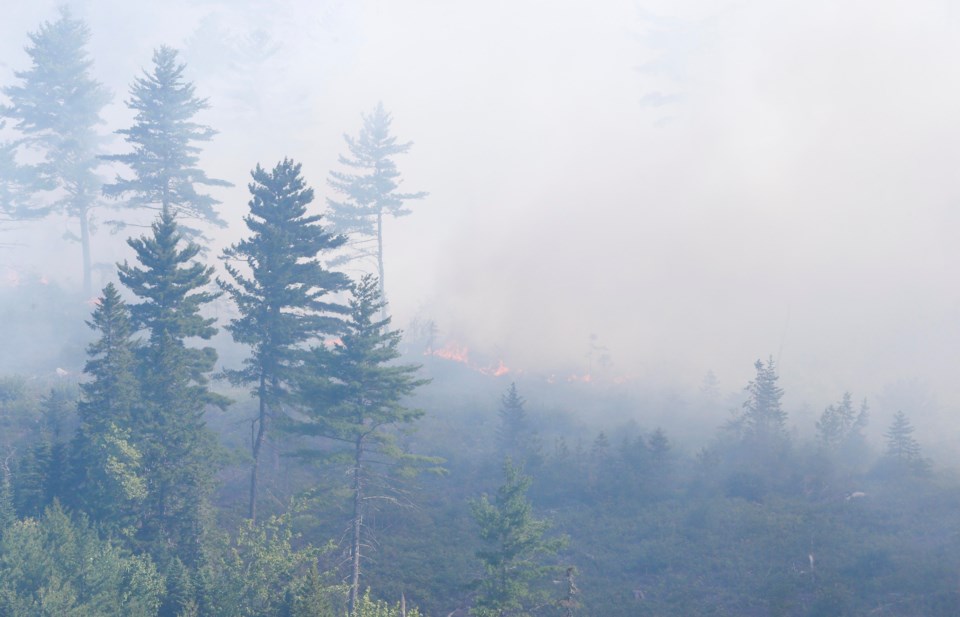The North Bay Parry Sound District Health Unit is reminding people to protect themselves should they encounter forest fire smoke.
The smoke can be particularly harmful to children, seniors, and pregnant women; people who have chronic heart or lung problems; as well as people who are very active doing work or sports outside.
“Forest fire smoke is made up of a mixture of gases and very small particles that are produced when wood and other organic matter burn,” says Greg Rochon, Manager of Emergency Management.
“These small particles and gases can be harmful to your health, so it’s important to take precautions.”
To shield itself from smoke, your body will make more tears and mucous. This can cause runny noses, scratchy throat, irritated sinuses and headaches. You may also develop a cough.
To protect yourself and minimize the health effects of forest fire smoke, the Health Unit recommends the following:
- If forest fire smoke is affecting your breathing or making you uncomfortable in others ways, move to a less smoky area. This may include going indoors or simply moving to an outdoor area with increased clean air flow.
- Homes can get really hot with the windows closed. If you do go indoors to get out of the smoke, be sure that the temperature indoors doesn't create additional problems for you. Use air conditioning or a fan if available and be sure to drink plenty of water to stay hydrated.
- If it is smoky outside, it is best not to go outdoors to do physical activity. Stay indoors with the windows closed.
- Use air conditioning in cars and keep windows closed. Remember, vehicles should never be run in an enclosed space like a garage.
- Avoid using smoke producing appliances such as wood stoves and even candles.
- Do not smoke tobacco inside - smoking puts added stress on your lungs and those around you.
- If you have asthma or other respiratory conditions, avoid smoke as much as you can and take your prescribed medicine. Speak with your health care provider to get the specific advice that is right for you.
For more information on forest fire smoke and your health, contact the Health Unit at 1-800-563-280



